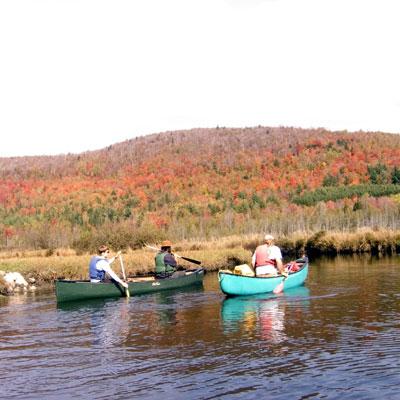Designing a New Model for Sustainable Ecological Tourism in the Northern Forest Region: An Atelier Course

Traditional tourism in the Northern Forest is based on the region’s scenic beauty and abundant opportunities for outdoor recreation. As forest conservation efforts increasingly limit the profitability of a timber economy, tourism has been proposed as an alternate resource of jobs and income for northern communities. However, without careful planning, tourism activities can be damaging to natural ecosystems and to local communities — low-wage service jobs often provided by the tourism industry are not always seen as desirable by the local community.
Ecotourism attempts to minimize the negative consequences of traditional tourism by emphasizing natural and cultural resource protection and reinvestment of income in conservation efforts. Still, ecotourism can often involve tourists passively visiting natural areas which are taken out of their ecological, cultural, and historical context and can lead to development that is less than sustainable for the local community.
To develop a more integrative and sustainable form of ecotourism, NSRC researchers used a university course to bring together faculty, students, and members of recreational organizations in Vermont, such as the Green Mountain Club, Vermont Mountain Bike Association, Northern Forest Canoe Trail, and Vermont Association of Snow Travelers. Course participants designed the concept of positive impact tourism which provides framework for forms of tourism that enhance the quality of life of both the tourists and the visited natural and social communities. The principles of positive impact tourism can be used as guidelines in assessing and planning tourism options for the entire Northern Forest region.
Download printable version [PDF]
Download full final report [PDF]
